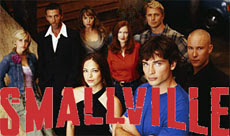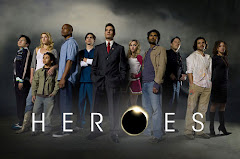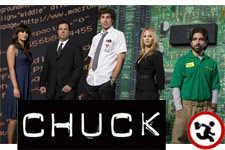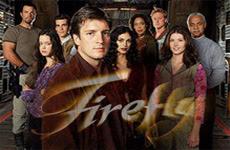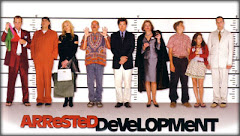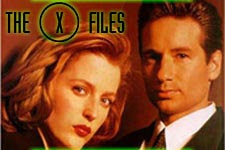Halley walks out of the diner after the completion of her second shift. Her eyes instantly fall toward a man sitting on the bench, reading a newspaper. Halley has never been able to pinpoint it, but thanks to her years of acting, she guesses, she has a sixth sense about people: she can tell when they are only pretending to do something. Plus, something’s a little too familiar about that dark hair. “Excuse me, sir, may I trouble you for the time?” she asks the reader, in her best British accent.
Christopher drops the paper, and almost to himself, states, “Six-forty-seven, and thirty-one seconds… 33… 34… Man, I love digital watches.” He turns to her, “It also updates through time zones, knows the current moon phase, and will also give me a compass bearing, which for some reason always happens to be 322 degrees.” He nods sympathetically.
“For an engaged man, you spend a lot of time waiting for waitresses in diners.”
Leaning back, he says casually, “I’m in New York City for a job, which doesn’t start until Thursday. All I’ve had to do all day is yell at muggers.”
“Ew. You get swiped?”
“Nah. They are all cowards. It’s amazing the kind of looks you can get when you point and yell at them.”
“What?”
Christopher shrugs, “I was watching Oprah and it was a segment on how to survive in urban areas.”
“Oprah?” Halley asks, crossing her arms, and giving him a look.
“That’s all that was on in my hotel room, except for that movie parody,” he says pensively, getting up from the bench.
“What was wrong with the movie parody?” she wonders, as Christopher stands beside her.
“My hotel room,” he repeats, “What kind of parody do you think it was?”
A brief pause, then, “Oh, I hear those are really entertaining.”
“You eat food, right?” he replies, flatly changing the subject
“Yeah, I’m starving. Will you be joining me?” she asks flatly.
“Sure, it’ll be my treat.”
“Whoo, in that case, let’s upgrade. I know this great place to get hamburgers.”
“Hamburgers are an upgrade?”
“I live in New York, where you have street vendors and then you have rooftop cafés. You can only be so choosy in either direction.”
* * *
Between bites of hamburger, Halley gets out, “Well, it turns out that Constance Merriam is actually supposed to be an elderly woman from Belgium, not a young uppity British girl.”
Christopher cringes, “So, I take it you didn’t get the part.”
“Nope, but I’ve got another audition in two days. Wish me luck.” She crosses her fingers.
“Course. So, still doing the acting thing?”
“Well, I’m doing a lot of the trying-out thing, not as much acting thing as I’d like.”
“Hard occupation. Anyway, I’ve got a job in two days. Wish me luck.”
“Luck. You never told me what you did.”
Christopher smiles, “No, I didn’t, did I? I’m a computer programmer.”
“Figures,” Halley groans, remembering how her high school friends raved about the calculator programs that Christopher had written that allowed them to pass their geometry exams, “Who do you work for?”
Christopher reaches into his coat pocket and pulls out a business card, and launches into an elaborate spiel. “Company called OmniTech. Started three years ago by some Microsoft ‘early retirees,’ if you catch my drift. Problem is, to get hired by Microsoft, you have to be the best. Their ‘corporate overhead’ is still in the top 1% of technicians in the country. Well, they started OmniTech and have been the trickiest little devils in preventing Microsoft from having a monopoly on the market. The US should thank us.”
Halley, oblivious, is staring at the business card. She comments, “I like the logo. There’s something about it…”

Defeated, Christopher blankly replies, “Symmetry.” With that, he gently takes the card and drops it face up on the table, tapping the corner lightly. It rotates slowly and Halley’s eyes light up. He tells her, “It’s called an ambigram. The first employee they hired after founding was caught doodling one of these. They took him off his current project for two weeks to design a new logo. Extra fifty bucks on his next paycheck.” “That’s cool.”
“I’ll relay the message.”
“So,” starts Halley, “tell me about this fiancée of yours.” Getting in touch with her inner woman, Halley even puts the French accent on the word, “fiancée.”
“Her name’s Laura Dale. I met her at Emory. She’s an elementary school teacher, ESL.”
“Good for her. ¿Español? I presume.”
“Por supuesto. Nunca me casaría con una mujer que no hablara español,” Christopher responds in perfect Spanish.
“Ack, it’s been awhile since I’ve had a class. I heard ‘nunca’ and ‘casar.’ Something about never marrying… a woman who doesn’t speak Spanish, I’m guessing.”
“Perfecto,” Christopher exaggerates the accent.
“¡Basta! I like Spanish as much as the next person, but one of your idiosyncrasies is going overboard with it, especially with non-fluents. You did it all the time in LHS.” Halley suddenly notices she is getting several looks and leans in. “They’re looking at us.”
“It’s probably you. Most of them don’t know that ‘basta’ means ‘enough’ and not… yeah.”
“Whoops.” Halley starts laughing, and is soon joined by Christopher. They continue to do so for several minutes. Half-recovered, she asks, “So, what was I thinking? Was I? Yeah, I was. Stage name; do you think I need one?”
After a final chortle, Christopher replies, “It wouldn’t hurt. But I thought a rose by any other name smelled as sweet.”
“True, but does a ‘rossee’ smell as sweet?”
Christopher glides his hand over his head with the accompanying “whoosh” whistle. He eyes her.
Halley giggles, “My name is mispronounced.”
Christopher interrupts, “Ah, the lovely Hailey... Deh… Mah… lore… uh…?”
“Yeah. I thought I’d start with something…” and with hand motions, “…regal… British, kind of… I like Constance.”
Christopher nods. “Constance’s pretty. Where d’you think of it?”
Halley shoves it off, “Call it inspiration. I’d also like to simplify my last name to… ‘Malore.’”
Christopher feigns being impressed, and then says with his best English accent. “Constance Malore. Sounds like a 19-year-old lovesick British chick from the 1800s. Your specialty.” He gets a fry thrown at him, but Halley can’t argue. In her tenure as a young actress at Lincoln High School, she had a knack for getting parts with European accents, or lovesick females, or characters from earlier centuries, or all of the above, really. But she got it down to an art. And the drama teacher, Mr. Carnegie, loved her to death for it.
“So, what do you think it needs?”
In an almost connoisseur-ish way, he replies, “It’s wonderful, but Constance Malore has too much of a pastel feel. Even Halley DeMallora has more fullness. It needs… tang.”
“Tang. Tang is good,” Halley comments, not hiding a smile, “What’s a tangy name?”
After a few seconds of thought, Christopher replies, “Something to match Electra?” He pauses for a few seconds, then vocally presents, “Carmen.”
Halley rolls her eyes, “Very funny, Christopher.”
“Constance Carmen Malore,” he recites, seemingly ignoring her lack of enthusiasm.
Halley perks up, and repeats it, with a thick Spanish accent. “Constance Carmen Malore…” she says passionately, “I like it. It’s tingly.”
“Tingly.” Christopher repeats deadpan.
“If anything to get my name right.”
“I know how that feels.”
“How do they get ‘Christopher VanDrey’ wrong?”
“‘Van-dree’ ‘Vanderay’ Varendy’ I got once. ‘Chris.’”
“Wait a second. I was in a bunch of your classes. You always said you didn’t mind ‘Chris.’”
“Eh, I appreciate it when people use the full form.”
“I do it out of convenience to discern between you and all the Chrises that we went to school with. Who else does three syllables?”
“Laura. My parents. My good friend, Diana Owler.”
This catches Halley off-guard, “The famous writer? The one who made the rounds on all the talk shows just last week?”
“Yeah, she went to Lincoln High with us for a year. So, you’ve read her books?”
“I haven’t had time to read a book in months. In the Sunday paper, I read the comics, the advice columns, and audition notices.” At this, Halley sighs heavily before smiling again, “Know anyone else famous?”
“Besides the world-renowned Constance Carmen Malore, nope.”
Halley laughs and takes a sip of her milkshake. “Continue to call me Halley.”
“Works for me.”
After a moment, Halley comments softly, “You know, my dad used to tell me that they named Halley’s Comet after me. I thought it was a sign that I, too, one day would be a star. That was before I realized it was pronounced the other way. I don’t know how this’ll play out.”
Christopher is quiet for a moment, “Halley, I don’t want to burst your bubble. Or whatever the opposite of bursting a bubble is, but it is Halley’s Comet,” he remarks, pronouncing ‘Halley’ with the short ‘a.’ “The astronomer, who was British, his name was Edmond Halley, like your name. Saying it with the long ‘a’ is simply an American mistake. Maybe it had to do with the warping of the British accent into the American accent. But it’s Halley.”
Halley has a bemused look, her eyebrows lowered, “You joshing me?”
“No, I’m not ‘joshing’ you. I’m guessing that’s the New Yorker version of ‘pulling my leg.’”
“Sorry, it’s something that was in my read-through today. It’s Halley?”
“Yep,” he replies deliberately.
Halley sits back in the booth, with a comforting sense of awe on her face, “Awesome. I mean, it’s not a completely profound thing, but… I’m glad you told me. How’d you find out?”
“Actually, it was kinda ‘cause of you. I remember you joking that it was really Halley’s Comet at school one day. Well, I looked it up in a British-origin dictionary, and it had the pronunciation for it with the short ‘a’ first, then the long ‘a’ as a secondary pronunciation. This was really the first time I got to tell you.”
“Thanks.” Halley looks at her watch. “I gotta get home. I have work in the morning. Listen, if you’re ever in New York again, visit me. Bring Laura. I’d like to meet her. Look me up.”
“If I don’t see your name in lights.”
“Yeah,” she replies, distant, sinking back into her seat, suddenly oblivious to the time.
“Halley, you’re gonna be a star. It’s not about talent,” Christopher immediately realizes his mistake, and corrects himself, “It’s not all about talent. You’re talented, yes. Immensely. And you have a burning love for acting. You’re gonna make it. You just have to find the right gig. Something that screams the way you are.”
“The way I am? Christopher, the roles you’ve seen me play are the naïve, lovesick girls. Granted, I was wonderful in them,” she states, with a coy smirk, which quickly vanishes, “but I want something better than this. I want to grow as an actress. Yeah, I love acting with a passion, but it’s not translating. You like computer stuff, and you’ve got a great job. What’s the difference?”
“The difference is the way our respective occupations are. I was hired to OmniTech right out of college because I interned at Microsoft, and I was under one of the guys who founded our company. Mr. Carnegie and your college acting professors aren’t professional directors. You haven’t made a name for yourself. About growing as an actress, Halley, you have to grow from somewhere. Halley, I cannot stand the way my team leader wants to program our projects. I think my ideas are a thousand times better, but I don’t know how to be a team leader. I hate salesmanship; I hate politics; but those are the kinds of things I need to have a grasp on before I move up the ladder. When Mr. Carnegie gave you the lead parts, it was because you proved yourself to him.”
“So you’re saying I should do the quirky British chick thing again?” she asks without enthusiasm.
“It’s a suggestion, from a computer programmer. I don’t know much about acting. I got out of it in the seventh grade. I’m just soliciting advice.”
“Thanks,” she replied in a rather feeble voice. She sits back in the booth, silent, and looks out the window, just staring. At first, her eyes try to play a connect-the-dots games with the stars, outlining her name, but she fails. She then looks to see the words “Constance Carmen Malore,” but quickly realizes that there aren’t enough stars in the New York sky for that. She then tires of stationary stars and searches the pitch-black horizon again.
“She won’t be back for another sixty-nine years, Halley.”
“Who?” Halley replies instantly, but smiles at the joke. Her father called it a “she,” too. “I wouldn’t mind any shooting star.”
Christopher points at the window, “There’s one.”
Halley’s head jerks toward the left, searching the night sky, but it’s still.
“You’re looking too far.”
Too far?, Halley thinks, still searching the sky. The night sky is two-dimensional, you can look too far in the horizontal or vertical directions, or too far toward some compass bearing, but “too far?” She turns toward Christopher, her face highly skeptical. He continues to point. She looks again, but quickly resides, and retracts her eyes, just staring at her translucent reflection in the pane.
And realization hits her again. Chuckling, she replies, “Christopher, how’d you get so smart?”
“I’ve always been smart, but how did I learn to talk like the old man on the mountain? Throughout high school, I stayed pretty sheltered and somewhat reclusive.” Halley smiles, remembering the shy but kind boy that never missed one of her plays. Halley always saw something in his eyes, burning to say something, but he didn’t. Their mutual friends told her that Christopher had the knack of saying just the right thing to get a whole group laughing every once in a while, but Halley had missed that pleasure. A friend named James Warren had one said that Christopher was going to write a book called What the Little Bird Saw, which would be a reflection of Christopher’s years of keen and silent observations. She had to agree. Christopher always seemed to know the general details about people, especially immediately picking up on people’s birthdays, including her own.
“However, in college…” Christopher continued. Halley was surprised about how much had gone through her head before the brown-haired man started his next sentence. She’d learned in her Oral Communication class that the human brain could think at roughly 400-500 words per minute. “…I found the courage to dive in head first in the Social Ocean, and I never was able to get out of the water. I cannot tell you how many all-night conversations I had with girlfriends or best buds. Conversation for me was something that only happened by grace when I was younger, but I got a lot of practice in college.”
Halley just smiled, too tired to respond. New York life had become too lonely for her tastes in the last few months. The apartment complex she lived in rented out single apartments for less than half of double. If she had the money, she’d gladly pay the difference just to have someone to talk to during the day. Then again, the apartment was really just for sleeping in. With her busy schedule, she’d still be seeing more of her coworkers than a roommate. Though, a roommate would be nice.
* * *
Halley’s Comet was first discovered in 240 b.c., over two thousand years before any other major comet. It is arguably the most famous. Named after Edmund Halley after he predicted it would show up Christmas Night 1758. He died before he saw his prophecy come true. It completes a cycle every seventy-six years, more or less, the second most infrequently-seen comet, just behind the Herschel-Rigollet with an orbit of 155 years. What it lacks in frequency, it makes up in proximity, coming within 2.1 million miles of the Earth during its perihelion, giving it the record of third-closest astral anomaly in recorded astrological history. The nucleus of the comet is a mere ten by five by five miles. She has a retrograde orbit, revolving in the opposite direction of the planets.
Though far away, the tiny ball of light burns furiously, leaving a long trail of similarly white light, though not near as bright. Halley, who is sitting on her father’s leg, can scarcely breathe. The comet glides near the western horizon. Within a few weeks, it will be gone, left for Europe and Africa to view its splendor. But for now, it’s Halley’s comet.
Huge goosebumps cover Halley’s skins, especially her bare arms, but unlike the rest of the bare-armed crowd, Halley is motionless, not rubbing her arms like her chilly guests. Her breath is shallow and spread out. I can almost hear Halley’s heart beating fifteen feet away. It sounds not like a heavy thumping, but a dull, full roar. From my point of view, I see the comet’s light reflecting in her pupils. Everyone is entranced by the comet, but no one more than she is. I have already absorbed the comet’s beauty on my own birthday, at 2:05 AM, so my enchantment is minor, allowing me to study the beauty of the people around me.
Mark Twain was born and died under Halley’s Comet, an occurrence he predicted himself. Some find the comet to a be a prophet of doom, but I rather think having the comet burning brightly in the sky as you emerge from the womb must be a blessing.
I pray it presence is for Halley at this point in her life.
* * *
“Christopher, you remember my sixteenth birthday party?”
“Of course, it snowed in April. That doesn’t happen a lot, even in the suburbs of New York.”
“No, the thing the day before.”
“Lookin’ at your comet.”
Halley smiles and stares out the window again, completely forgetting what she wanted to say, but smiling nonetheless.
Halley would have fallen asleep in that booth if Christopher hadn’t led her out of her seat and walked her home, which was actually only two blocks away from the restaurant and right on the way to his hotel anyway. Plus, it wasn’t too smart for a woman to walk home alone in the city at night. The company didn’t hurt anyway.
Chapter 5




